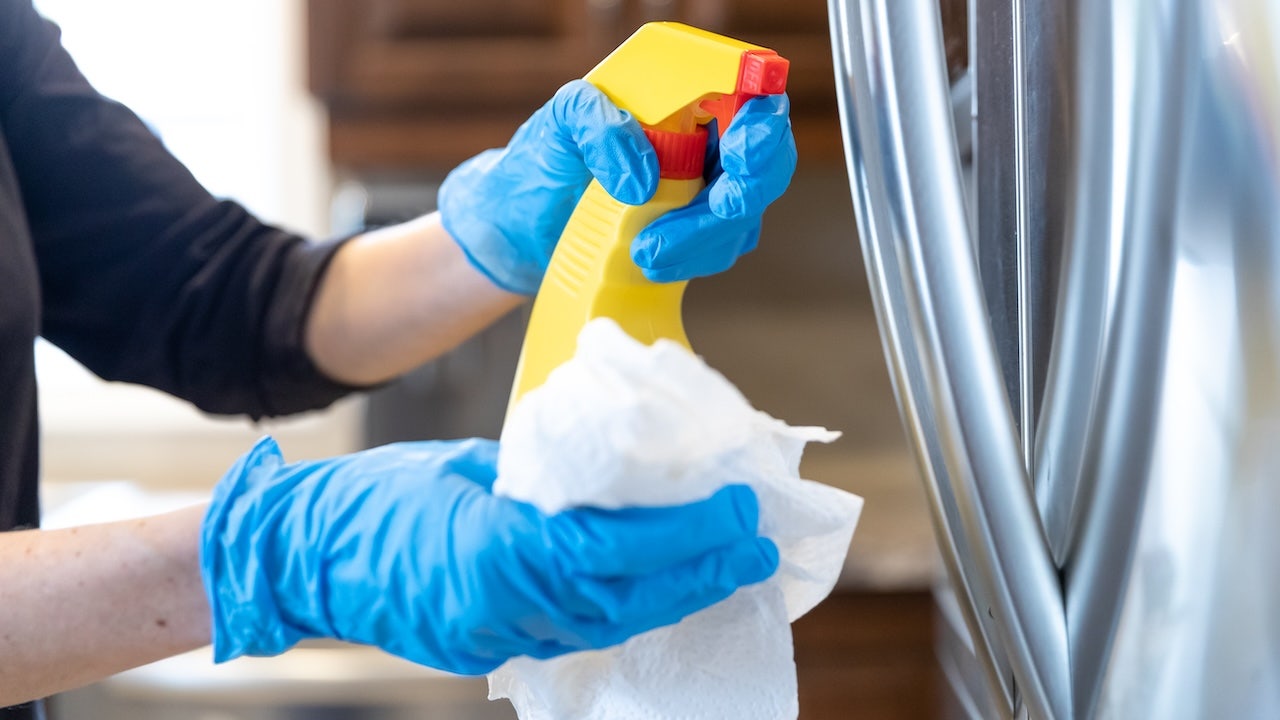Copyright Fox News

Exposure to a common chemical used in dry cleaning and some consumer products has been linked to triple the risk of a dangerous liver disease, a new study suggests. Tetrachloroethylene (PCE), which is also used in some adhesives, spot cleaners and stainless steel polish, was associated with three times greater odds of significant liver fibrosis in U.S. adults, according to research from the Keck School of Medicine of the University of Southern California. Liver fibrosis is a buildup of scar tissue that can progress to liver cancer, liver failure or death, a press release stated. DAN MARINO’S METABOLIC LIVER DISEASE HIGHLIGHTS GROWING HEALTH CONCERN The researchers also identified a dose-response relationship — meaning greater exposure to PCE led to a higher likelihood of developing liver fibrosis. To arrive at the findings — which were published in the journal Liver International — the team analyzed data from the National Health and Nutrition Examination Survey (NHANES), a nationally representative survey of the U.S. population. To measure PCE exposure, they analyzed blood samples in 1,614 adults aged 20 and older between 2017 and 2020, finding that about 7% of the population had detectable levels of the chemical, the release stated. Next, they looked at which individuals with PCE in their blood showed signs of significant liver fibrosis. Those exposed to the chemical were three times more likely to have notable liver fibrosis than those without exposure. AIR POLLUTION MAY PLAY A BIGGER ROLE IN COGNITIVE DECLINE THAN ANYONE REALIZED "We were surprised that so many people have detectable PCE in their blood, and that the link with liver scarring was so strong," lead author Brian P. Lee, M.D., hepatologist and liver transplant specialist with Keck Medicine of USC, told Fox News Digital. "Since prior studies have mainly focused on people who are exposed to PCE for work (e.g. work at the dry cleaners), I think people will be surprised by their exposure, even when they don’t directly work with PCE." "No doubt there are other toxins in our environment besides PCE that are dangerous to the liver." People from higher-income households were most at risk of PCE exposure, the study found. "People with higher incomes may be more likely to use dry cleaning services, which could increase their exposure to PCE," said Lee. "However, people who work in dry cleaning facilities may also face elevated risk due to prolonged, direct exposure to PCE at work." Other health factors like alcohol consumption and obesity-related liver fat accumulation did not seem to contribute to significant liver fibrosis when PCE was detected in the blood. "Patients will ask, how can I have liver disease if I don’t drink and don’t have any of the health conditions typically associated with liver disease — and the answer may be PCE exposure," said Lee. PCE risks and regulations In addition to liver disease risk, long-term PCE exposure has also been linked to neurological impairment, mood and behavior changes, kidney damage, developmental and immune system effects, and heightened cancer risk, according to the U.S. Environmental Protection Agency. Short-term exposure could lead to upper respiratory irritation, neurological symptoms (dizziness, headaches, fatigue and impairment) and kidney dysfunction. MAJOR STUDY OF DIET DRINKS RAISES QUESTIONS ABOUT THEIR HEALTH IMPACT Pregnant women and children are particularly vulnerable to the developmental effects, per the EPA. Under the Toxic Substances Control Act, the EPA determined that PCE presents an "unreasonable risk" under certain use conditions. In December 2024, the EPA issued a Final Rule restricting the "manufacture, import, processing, distribution, use and disposal" of PCE for many applications. In January 2025, the agency released compliance guidance for dry-cleaning and energized electrical cleaning. CLICK HERE TO SIGN UP FOR OUR HEALTH NEWSLETTER "In 2024, the EPA announced a ban on PCE for consumer and commercial uses with a 10-year phaseout — however, this ban is now being reconsidered," Lee told Fox News Digital. "This current study provides data to inform policymakers." Study limitations The authors noted several limitations to the USC study. Because it was cross-sectional and looked at PCE levels at one point in time, it couldn’t prove a causal relationship between chemical exposure and liver fibrosis. CLICK HERE TO DOWNLOAD THE FOX NEWS APP The findings also may not apply to people in other countries, as the study included only U.S. adults, the researchers added. More research is needed to confirm the role of environmental toxins in liver disease risk, the authors acknowledged. "No doubt there are other toxins in our environment besides PCE that are dangerous to the liver," Lee added. The hope is that this research will help improve patient outcomes. TEST YOURSELF WITH OUR LATEST LIFESTYLE QUIZ "Liver disease is growing in the United States at an alarming rate — the problem is that liver disease doesn’t normally cause symptoms until you have very advanced disease," Lee said. "Knowing the contributors to liver disease — on top of alcohol, diabetes and being overweight — can help you know whether you need to talk to your doctor about getting screened." CLICK HERE FOR MORE HEALTH STORIES The study was supported by the National Institute on Alcohol Abuse and Alcoholism and the National Institutes of Health. Fox News Digital reached out to several PCE manufacturers requesting comment.



